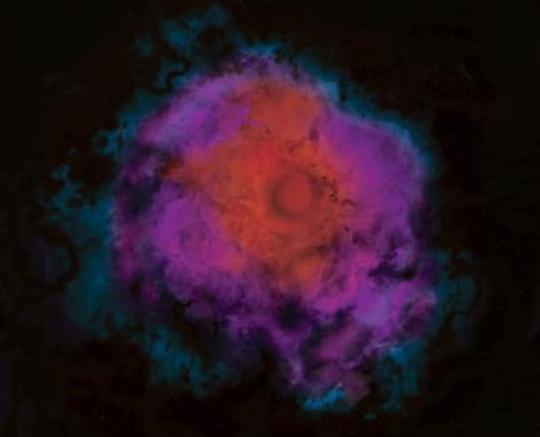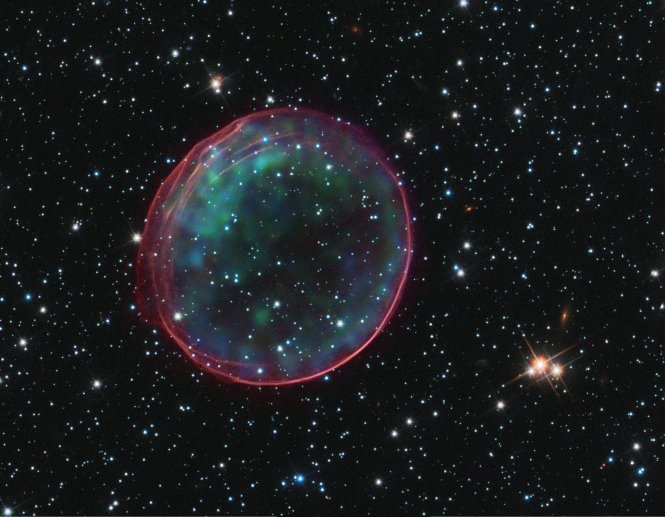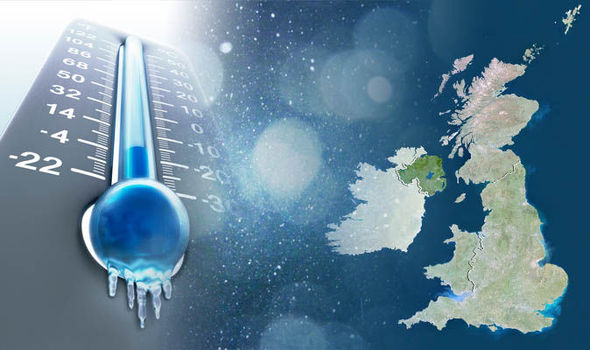Less than a generation ago, astronomers discovered that the universe is expanding at an ever-accelerating rate. “Something is pouring energy into the universe,” they said, “causing it to accelerate.” They call it “dark energy,” because they cannot detect or measure it.
This observation turned cosmology on its head. It’s all the weirder because in its first 7 billion years, the universe was slowing down, and gravity prevailed. If the present acceleration continues, there are only two possibilities: the universe will end in a “Big Freeze,” or a “Big Rip.”

With the Big Freeze, the cosmos will get “darker, colder and more desolate” over trillions of years, ending in a permanent state of absolute zero, an “ugly depressing fate” as one astronomer put it.
If the rate of acceleration of spacetime continues however, everything will be ripped apart, from galaxies to stars to planets to atoms themselves as the speed of the expansion increases exponentially.
It boils down to a simple question: Does the universe as a whole, as all life on earth, and indeed the sun and stars themselves, go through cycles of birth and death, or is the universe somehow exempt from the cycle and end in a Big Freeze or Big Rip?
The cyclic universe is the only logical hypothesis that fits the pattern at stellar, planetary and terrestrial levels.
Since nothing can be infinitely small and dense (for one thing all mathematical equations break down), astronomers now feel that singularities, whether with black holes or the Big Bang, don’t actually exist. Something has to give, and the most likely scenario is that the universe is cyclic, and ‘bounces’ from immensely condensed to vastly expanded, and back again.
That’s not to say we live in a reincarnated universe, but rather that each ‘bounce’ of a Big Bang incarnates an entirely new universe.
Physicists are also grappling with how to resolve the immensely small, quantum scale with the immensely large matter/gravity scale.
The universe isn’t a closed system. As I see it, the cosmos did not just begin with the Big Bang and has been expanding mechanistically ever since, but is in a continuous state of creation.
So is energy, as a property of spacetime, still being created, until it stops and the universe begins to collapse back in on itself?
Let’s suppose that what astronomers are calling “dark energy” is actually a property of the continuous creation of the universe, flowing from the same source that produced the initial inflation as well as all observable energy and matter.
That source would be inherently immeasurable but not infinite in any universe. That is, the flooding of the universe with dark energy would not be perpetually inexhaustible, and our universe will run its cyclic course. The only constant is death, both in a cyclic sense, and as the ground of everything.
This way of looking at the expanding universe has the advantage of not positing the preexistence of ‘dark energy,’ a made up thing making up 70% of the universe. Though it violates first law of thermodynamics, the cosmic expansion of spacetime may be due to the ongoing creation of new energy from the same source that gave rise to the universe itself.
In other words, dark energy does not pre-exist the present but is coming into existence every moment. Where is it coming from? The same ‘place’ that gave rise to the universe in the first place.
Since we live in an expanding universe, one that is expanding at an increasing rate at that, it’s interesting to envision what it would be like to live in a collapsing universe. Wouldn’t creation still be happening, just in reverse, and would that be any less strange than the present universe?
It’s important to realize that we’re not just talking about the contraction of matter and energy, but of space and time itself.

Einstein demonstrated that space and time are actually inseparable. In the same way that Einstein supplanted Newtonian physics, the present duality between the quantum level and the macro level will be seen to be the product of the limited physics of our time.
Will there ever be a complete understanding of the universe? No, since scientific knowledge, by its very nature, can never be complete. Knowledge is never complete. There will always be more questions and phenomena to explore.
In the end, as in the beginning, the universe is both complete and incomplete at the same time. Incomplete in the sense of unfinished—expanding spacetime, creating stars, planets, life, and potentially intelligent species such as humans.
A feeling of completeness is essential to our being however. It cannot be found in science. So where is it to be found? In directly experiencing, beyond words, concepts and knowledge, the wholeness of life and the cosmos.
And that raises the greatest mystery of all: Why is the world the wretched place it is, when the universe is the endless mystery, beauty, and I daresay love that it is?
Martin LeFevre

